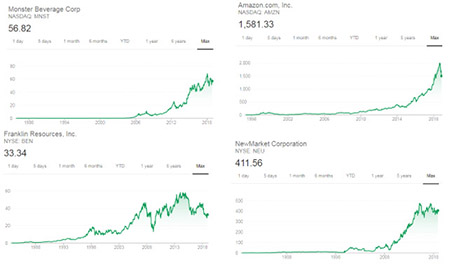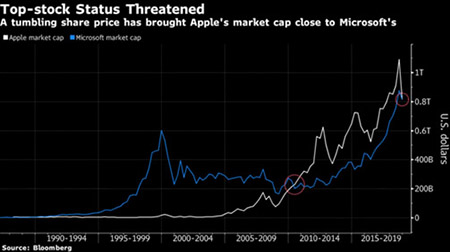Have you ever wondered how they funded the Great Wall of China?
There were a couple of slaves on the job. No wages for them, just the cost of water and food.
There were also a couple of soldiers and other workers lending a hand.
How did China pay these workers around the clock for a century?
Did the emperor dip into the treasury? Did he increase taxes?
Maybe.
Legend has it that one smart councillor came up with an even better idea.
Instead of forcibly taking money in the form of taxes, why not encourage people to give up money voluntarily?
He suggested the emperor run a game. Anyone could buy into the game. And if they won, they could take home whatever was in the pot.
The game involved drawing wood, similar to drawing lots. The person who drew the longest piece got to take home the spoils, minus a fee to the emperor, of course.
Because of China’s huge population, the small fee for running thousands of these games quickly added up. It was enough to cover a good chunk of wages and building costs.
The Roman Empire was next to adopt this fun game. They usually played it at dinner parties. In time, this game of chance became a real business.
People would sell tickets on the street, offering a passer-by the chance of instance riches.
If this sounds like a modern-day lottery, it’s because it should.
This game that helped build the Great Wall of China started it all.
And even today, investors play this game with stocks.
Let’s see how…
The newest lottery ticket
Lotteries are crappy investments.
I think everyone will agree with that.
But does that stop millions of people from buying tickets every week?
The same could be said about stocks. Everyone knows you’ve got to buy cheap and sell dear. So why do investors consistently buy dear stocks? And why are they surprised when those stocks fall short of expectations?
It’s because most investors are looking for that lottery ticket.
They see stocks like Amazon.com, Inc [NASDAQ:AMZN], Monster Beverage Corp [NASDAQ:MNST], NewMarket Corp [NYSE:NEU] and Franklin Resources, Inc [NASDAQ:BEN] that go from one to 100 and want in on the action.
The latter became a 100-bagger in a little over four years.
 |
Source: Google Finance |
So what do investors do next with quick riches in mind?
They do silly things.
They buy Amazon thinking its easy money, even if it trades for 88-times trailing earnings. And they buy Netflix, Inc [NASDAQ:NFLX] thinking the same thing, even as it trades close to 100-times earnings.
Dominant size, subscription growth and addressable markets. These are all words to justify their silly purchases.
The only way to see their mistake is with time. And most likely a BIG loss.
It’s why when Forbes asked Columbia Business professor Bruce Greenwald to give readers investing advice he told them to stay away from the lottery tickets.
‘People in every country have always paid for lottery tickets. They’ve always been crappy investments and they’re paying for the hope and the dream. So you want to stay away from that.
‘Second thing is in life, as in investing, people are overly averse to what’s ugly, disappointing, cheap and you really want to go there, which is the corollary to staying away from the big upside stocks.
‘And I think the third thing that really value investors are aware of is that human beings are constituted not to think in terms of uncertainty.
‘If they think there are weapons of mass destruction in Iraq, they’re sure there are weapons of mass destruction in Iraq. Nobody thinks it’s a 60% chance. If they think it’s a good stock, they think its 100% chance that it’s good stock.
‘If they think it’s a bad stock, they think its 100% chance it’s a bad stock. What that means is that the good stocks are overbought, and the bad stocks are oversold.’
So, just by avoiding lottery stocks you’ve got a leg up on a majority of investors already.
What’s the next lottery stock to steer clear of?
I’d argue its Microsoft Corp [NASDAQ:MSFT].
A lottery stock in disguise
Microsoft doesn’t look like a lottery stock at first glance.
Sure they’re a tech company. And investors likely have high hopes for the business going forward.
But the stock trades at just 24-times expected earnings for 2019. It’s something I’d take over Amazon’s 58 PE for 2019.
It also makes sense that investors would pay up for Microsoft.
It’s a great business, after all. They have loyal customers. Their products are great. Just recently the stock eclipsed even the mighty Apple Inc [NASDAQ:AAPL].
 |
Source: Bloomberg |
But many investors are looking at Microsoft and seeing something that’s not there. I think the following Forbes title sums up their views: Microsoft and LinkedIn Can Revolutionise Retail.
And it’s not just retail that investors are giddy about. Cloud storage (data storage), their investments into artificial intelligences (AI) and ride hailing are all reasons to back this giant software firm.
But as Greenwald mentioned earlier, baked into Microsoft’s price are hopes and dreams. Investors hope Microsoft can expand well beyond software. And they dream of the stock rising another 10,000%.
But are either realistic assumptions to make?
Oodles of cash doesn’t mean you can win in any industry. The reason why companies like Facebook, Google and Microsoft have been extremely successful is because they stick to their advantages.
For Microsoft, that’s creating and delivering software.
It’s why the company generates more than 70% of revenues from two divisions: personal computing and productivity, and business processes.
Within these divisions are two dominant products: Windows and Microsoft Office.
It’s also possible for companies to be successful on the fringes of their advantage. You could argue that cloud storage complements software.
Microsoft already sells a large chunk of software via the cloud. Their Office 365 business also runs huge amounts of data for customers on the cloud.
They have the infrastructure for it. So why not offer it as a service in their ecosystem?
It’s why Microsoft’s remaining 29% of sales come from Azure (their cloud service).
But to say Microsoft will be a dominant retail player or an AI specialist is a bit of a stretch in my eyes. They have no advantage in either industry.
Yet that doesn’t stop the pundits from paying up for expected growth. I suggest you steer clear for now and look for better opportunities.
Try not to gamble,
Harje Ronngard





Harje Ronngard is one of the editors at Money Morning New Zealand. With an academic background in finance and investments, Harje knows how difficult investing is. He has worked with a range of assets classes, from futures to equities. But he’s found his niche in equity valuation. There are two questions Harje likes to ask of any investment. What is it worth? And how much does it cost? These two questions alone open up a world of investment opportunities which Harje shares with Money Morning New Zealand readers.